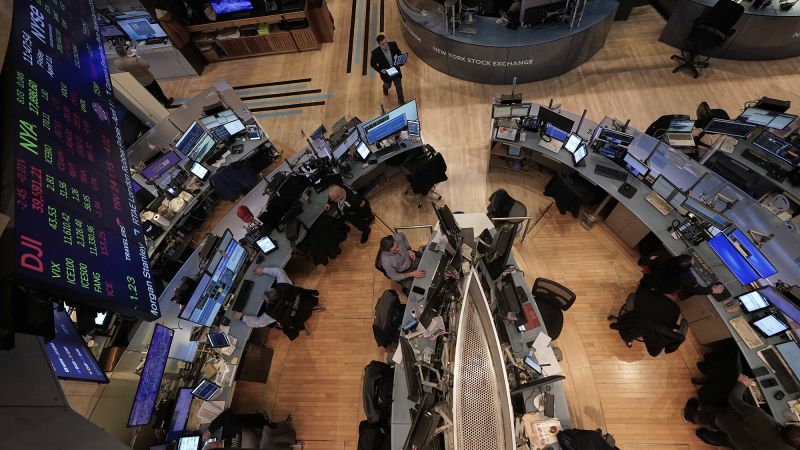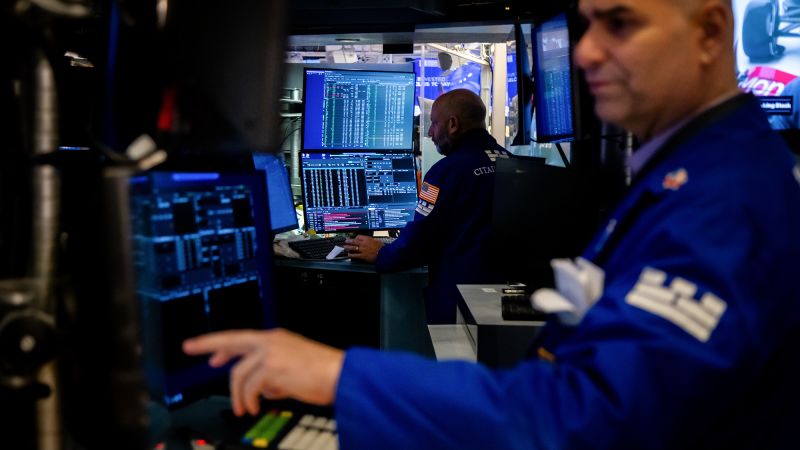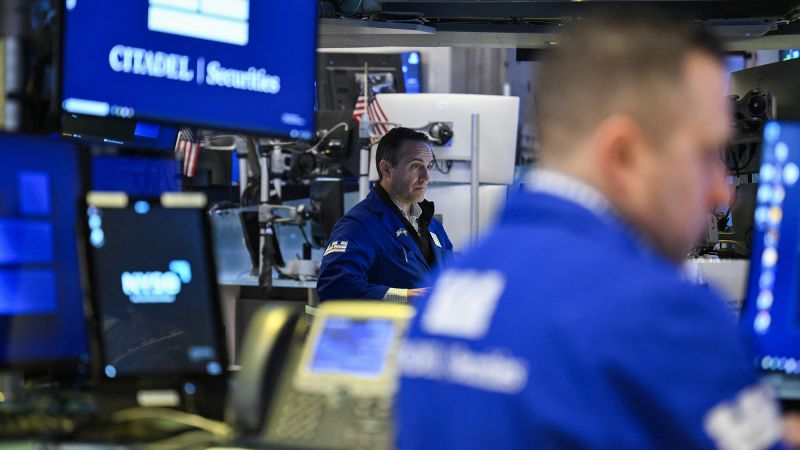US Stocks Surge as Tariff Exemptions Lift Investor Sentiment
On Monday, US stock markets experienced a notable upswing, fueled by the Trump administration’s recent decision to exempt tariffs on various electronics, including smartphones and computers, imported from China. This development sparked optimism among traders, pushing key indices into the green.
Market Performance: Key Indexes Rise
- The Dow Jones Industrial Average climbed by 312 points, or 0.78%.
- The S&P 500 index saw a gain of 0.79%.
- The Nasdaq Composite, heavily weighted with technology stocks, increased by 0.64%.
Despite a somewhat turbulent trading session, all three major indexes closed higher. Initially, the markets opened positively but faced some volatility as tech stocks fluctuated. The Nasdaq had a morning peak of 2.4% before settling down to end the day positively. Both the Dow and S&P 500 also encountered minor dips before rebounding later in the day.
Positive Reactions to Tariff Exemptions
The rally in US stocks was partly driven by encouraging news over the weekend, revealing that the Trump administration had granted tariff exemptions on electronics. This was confirmed by a notice from US Customs and Border Protection. The exemptions came shortly after President Trump imposed a 145% tariff on imports from China, although they do not apply to the 20% tariff related to the fentanyl trade.
Tech giant Apple Inc. (AAPL) saw a robust increase of 2.2% as investors reacted positively to the news.
Concerns Surrounding Trade Policy
Despite the uptick in stock prices, uncertainty regarding the ongoing trade conflict with China remains. Commerce Secretary Howard Lutnick indicated that these exemptions might only be temporary. He noted that while electronics are currently exempt from reciprocal tariffs, they will still be subject to semiconductor tariffs expected to take effect in the coming months.
“Electronics are exempt from reciprocal tariffs, but they will face separate levies soon,” Lutnick mentioned during an interview with ABC News.
Potential Automotive Tariff Relief
In further developments, President Trump hinted at contemplating a short-term tariff exemption for the automotive industry. His previously implemented 25% tariff on vehicles has been in effect since early April, and tariffs on auto parts are expected to follow shortly. Following Trump’s remarks, shares of major automakers, including Ford (F), Stellantis (STLA), and General Motors (GM), surged by over 3%.
“I’m looking at ways to assist car companies adapting to parts manufactured in Canada, Mexico, and elsewhere, allowing them a bit more time,” Trump stated during a press conference at the White House.
Global Markets Follow Suit
The bullish trend in US stocks mirrored gains in international markets. The STOXX 600 index in Europe rose by 2.7%, and Germany’s DAX increased by 2.85%. In Asia, the Nikkei 225 gained 1.2%, while Hong Kong’s Hang Seng index rose by 2.4%. Taiwan’s market, however, was an exception, slipping by 0.08%.
Consumer Sentiment Shows Signs of Concern
This surge in stock prices occurred against a backdrop of growing consumer pessimism. A recent survey from the New York Federal Reserve indicated a sharp rise in short-term inflation expectations, which increased by 0.5 percentage points to 3.6%, marking the highest level in a year and a half.
Market Volatility and Future Outlook
The past fortnight has been a roller coaster for US stocks, following the announcement of reciprocal tariffs and a subsequent 90-day pause on most of them. The S&P 500 suffered its worst week since 2020, with a 9% drop in the first week of April, only to rebound with a 5.7% gain the following week.
UBS analysts noted, “The situation remains fluid, but with the 90-day tariff pause and the recent electronics exemptions, we anticipate a continued recovery in tech stocks.”
Navigating Economic Uncertainty
Despite the positive market movements, uncertainty regarding trade policies persists, leaving investors cautious about future economic growth. Analysts from Morgan Stanley expressed that while delays in tariffs can offer marginal benefits, they do not equate to their elimination.
Goldman Sachs CEO David Solomon highlighted that the current economic climate is markedly different from earlier this year, with increasing signs of a potential recession. “Our clients are concerned about significant uncertainties that hinder crucial business decisions,” he remarked.
Market Predictions and Treasury Trends
In light of these developments, Citi analysts have revised their year-end target for the S&P 500, lowering it from 6,500 to 5,800 amidst a challenging tariff landscape.
As the week progresses, all eyes will be on the Treasury market, which recently experienced significant volatility, raising questions about the stability of US government debt as a safe investment.
Additional Market Insights
- On Monday, US Treasuries showed minor gains as yields stabilized after a turbulent week, with the 10-year Treasury note yield hovering around 4.38%.
- The US dollar index fell by 0.4%, reflecting broader investor concerns about the nation’s economic outlook.
- Oil prices remained steady, with US crude settling at $61.53 per barrel and Brent crude at $64.88.
- Gold prices saw a slight dip of 0.8%, following a significant surge recently, with analysts predicting a year-end price target of $3,700 amid ongoing economic uncertainty.
As market dynamics evolve, investors will closely monitor these developments, balancing optimism with caution in an unpredictable economic landscape.










